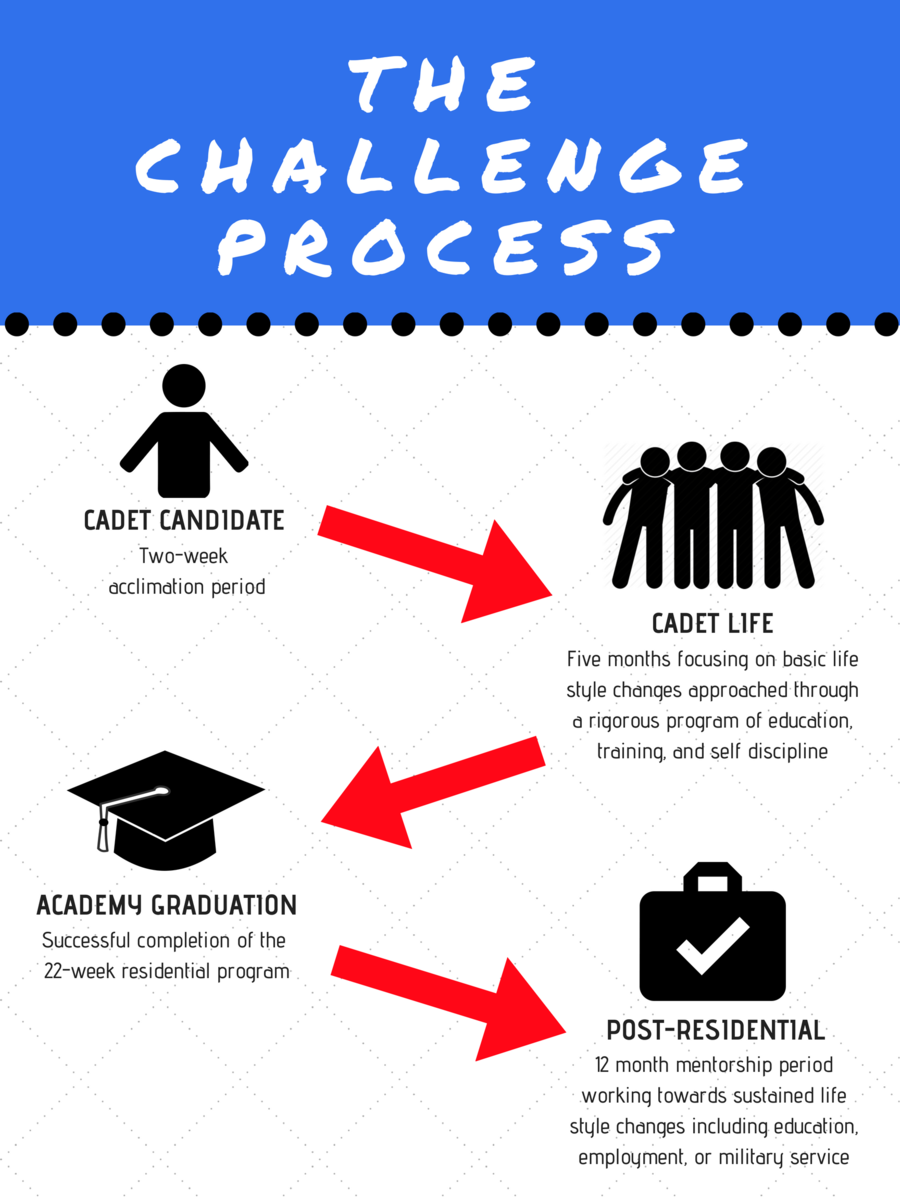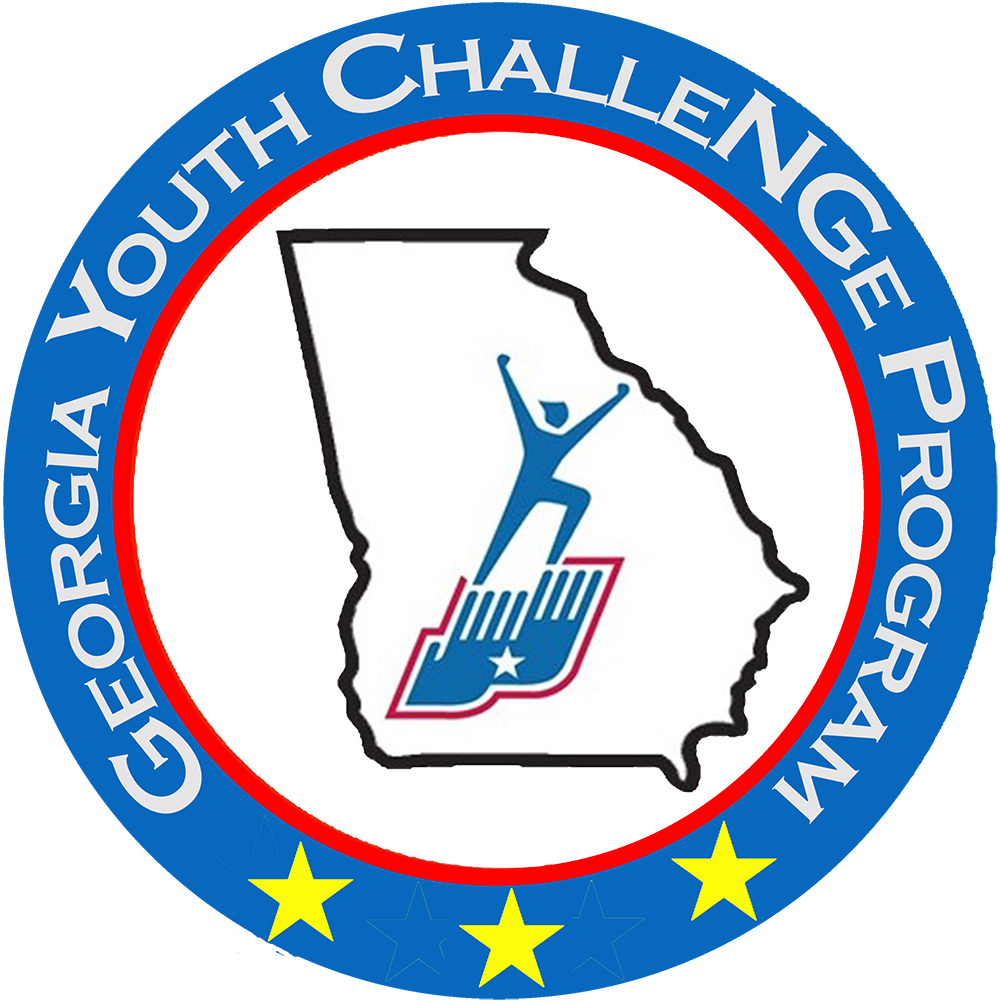The two-week Acclimation Phase precedes the Residential Phase and orients Cadet Candidates to the ChalleNGe program environment by allowing them to adjust to the physical, mental and social discipline required to successfully complete the program. The focus is on teamwork, close quarter drill, code of conduct, leadership and followership, and physical fitness training. Candidates relinquish personal items, receive haircuts, and exchange their clothes for uniforms, placing them all on a level playing field. During the Acclimation Phase, staff members continually assess each Cadet Candidate's potential for success in the Residential Phase. Cadet Candidates learn to replace negative behaviors, attitudes, and skills and are introduced to daily experiences of healthy routines and a structured and disciplined environment. At the end of the Acclimation Phase motivated Cadet Candidates are selected to enroll in ChalleNGe and become Cadets.
Historically, the majority of the selected Cadets will go on to successfully complete the Residential Phase. During the next five-months, Cadets experience a structured and disciplined schedule that focuses on developing their social, emotional, academic, and basic life skills. This is accomplished through the implementation of the Eight Core Components, the foundation of the ChalleNGe program intervention model. Cadets complete the Residential Phase with the skills and values necessary for their successful transition and integration into adult society. Mentors are matched with Cadets midway through the Residential Phase. the mentors help support the cadets during the remainder of the Residential Phase and help them prepare to reenter community life. Mentors continue the responsibilities during the 12-month Post-Residential Phase.
The 12-month Post-Residential Phase begins when graduates return to their communities, return to high school, pursue higher education, find a job, join the military, or volunteer at least 30 hours a week. The goal of this Phase is for graduates to sustain and build on the gains made during the Residential Phase. In addition, they must continue to develop and implement their life plans. The mentors, matched with the cadets during the Residential Phase, play a critical role in ensuring their continues success. They help youth transition from the structured environment of the Residential Phase to self-management. The mentors also support and guide the cadets through implementation of their life plans.
The Georgia Youth ChalleNGe Program uses a Youth Initiated Mentoring match; when applicants apply to the program they identify potential Mentors from their local community. Mentors are formally screened and trained prior to ceremonial matching with their Mentees to begun fostering their newly defined relationship and communication about the Cadet's future plans. Once formally matched, the Cadet and Mentor are allowed to spend off-site time together, often performing service to community or exploring job and school options. The mentoring relationship forms the core of a youth's Post-Residential ChalleNGe experience. It is within the safety of this relationship that a young person can evaluate what was learned in ChalleNGe and apply it to real life.
For more information on how to become a mentor, click HERE.

